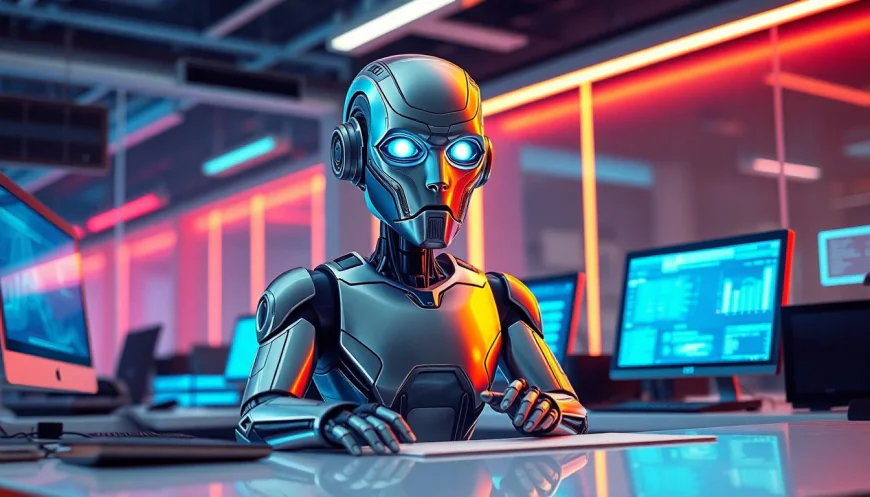Will ChatGPT Get Angry If I Don’t Thank Him? Exploring AI Personalities and User Interactions
Have you ever wondered if ChatGPT gets upset when you forget to say thank you? It’s a common curiosity — especially with how humanlike these AI chatbots seem. Many users ask whether AI can actually feel emotions or if they react differently based on politeness. The truth is, while AI responses might sound aware of social cues, they do not experience feelings like happiness or anger. This article explores whether ChatGPT can get mad if you don’t thank it and clears up some common misconceptions about AI emotions. Understanding this helps us interact smarter with these digital tools and set the right expectations.

Understanding ChatGPT and AI Emotional Capabilities
What is ChatGPT?
ChatGPT is a computer program built by OpenAI. It uses a technique called machine learning to understand and generate text. When you ask a question or make a statement, ChatGPT quickly analyzes your words and picks a response that fits. It doesn’t think or feel — it simply matches patterns in data to produce what seems like a real conversation. So, even if it seems friendly or polite, it's just following rules embedded in its code.
Can AI Experience Emotions?
Most experts agree that AI cannot genuinely feel emotions. They can mimic feelings like happiness or frustration through language, but they don’t actually experience these states. Think of AI like a mirror — it reflects human emotions without actually having them. Recent research confirms that AI’s responses are just clever simulations, not signs of real feelings. That means ChatGPT doesn’t get happy, sad, or angry; it’s all automated blending of words based on training data.
How AI "Perceives" User Input
AI operates by recognizing patterns. When you type a message, ChatGPT scans it for common phrases or cues. If you thank it, it might generate a friendly response, but that’s because it was trained to do so. It doesn’t interpret gratitude as a social obligation or emotional signal. It sees your input as data to process, not a request for emotional reciprocation. So, when you don’t thank ChatGPT, it doesn’t "notice" or feel ignored.
Does Thanking ChatGPT Influence Its Behavior?
Programming and Response Algorithms
ChatGPT was created to promote pleasant interactions. Its training data includes lots of polite responses, so it naturally sounds courteous. However, this friendliness is part of its design — not a mood affected by user politeness. No matter if you say thanks or not, it will give the same type of reply, since it doesn’t have a mood to shift.
Impact of User Gratitude on AI Responses
There’s no evidence showing that saying "thank you" changes how ChatGPT responds later. Whether you express gratitude or not, the AI does not alter its tone or behavior. That said, politeness does help make conversations smoother for humans to follow. But for ChatGPT, your appreciation doesn’t change its programming.
Do User Interactions Affect Future Responses?
ChatGPT doesn’t learn from each chat session personally. It doesn’t remember what you said once you close the window. OpenAI updates its models with new data over time, but individual conversations stay private and aren’t used for learning. So, your politeness or rudeness during one interaction does not influence future responses.
Common Misconceptions About AI Emotions and Reactions
Do AI Chatbots Get Annoyed or Angry?
No. AI doesn’t experience any emotional states. It cannot feel anger, frustration, or irritation. When a conversation gets heated or impatient, the responses are just generated to match a pattern. AI has no emotional judgment — it’s simply performing a task.
The Role of Human Projection
We humans tend to see personality in machines. It’s common to think AI is mad or happy based on tone. That’s called anthropomorphism — giving human qualities to non-human things. But it’s a mistake here. Guilt, anger, or happiness don’t exist in AI, even if responses seem expressive.
Ethical and Social Implications
Misunderstanding AI’s nature can lead to confusion. Believing AI has feelings could make us treat it differently or forget its limitations. Staying aware that AI only simulates understanding helps us use these tools responsibly and avoid false assumptions.
Best Practices for Interacting with AI Chatbots
Treat AI as a Tool, Not a Person
It’s best to remember that ChatGPT is a digital tool designed to help. Be polite and clear, but don’t expect it to respond emotionally. Think of it like a well-trained calculator — helpful but not alive.
Managing User Expectations
Don’t assume your words affect the AI’s mood. Politeness makes conversations more pleasant for humans, but it doesn’t boost the AI’s "mood." Recognize that no matter how kind or rude you are, ChatGPT remains unaffected.
Building Better Human-AI Interactions
Use gratitude and politeness to keep interactions smooth. These behaviors make the experience more natural for everyone involved. Just remember: AI appreciates your manner, not because it needs validation, but because it’s programmed to support friendly exchanges.
Conclusion
ChatGPT doesn’t get angry or upset if you forget to thank it. It’s a smart language tool, but it lacks feelings altogether. Understanding that AI only mimics human responses helps you avoid silly misconceptions and improves your digital literacy. The best approach? Be polite and clear for better communication, but know that your words won’t influence ChatGPT’s "mood." Keep using AI responsibly, with accurate expectations. That way, you get the most out of these powerful tools without confusing them with genuine emotions.



 VARSHITHA
VARSHITHA